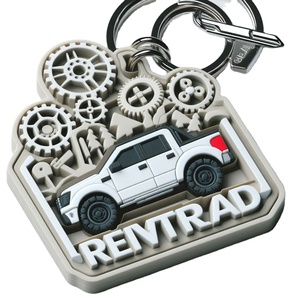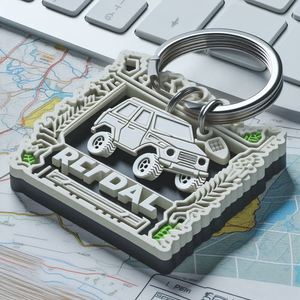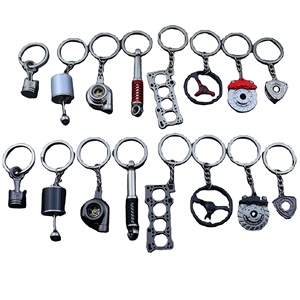
All categories
Featured selections
Trade Assurance
Buyer Central
Help Center
Get the app
Become a supplier

(45106 products available)












































Not so long ago, cars were started using metal keys. With the advancement of technology, plastic car keys were developed. Also known as transponder keys or chip keys, they have become the standard in modern vehicles because of their convenience and security. They come in different types, each with its own features.
Regular Inspection
Inspect the key regularly for signs of damage, such as cracks, chips, or wear. Even small issues can affect the key's performance over time.
Keep it Clean
Dirty keys can cause problems. Clean the plastic car key with a soft cloth regularly. Avoid using harsh chemicals that could damage the key's surface.
Avoid Excessive Force
Do not use excessive force when inserting or turning the key in the ignition. Plastic car keys are not as sturdy as metal keys and can break with rough handling.
Protect from Extreme Temperatures
Avoid exposing plastic car keys to extreme heat or cold. Extreme temperatures can cause the plastic to warp, crack, or degrade over time.
Avoid Keychain Clutter
Avoid overcrowding the key with accessories. Excess weight can strain the key fob's buttons and casing, leading to damage or malfunction.
Store it Safely
When not in use, keep the key in a safe place. Avoid leaving it in exposed places where it could get lost, stolen, or damaged.
Follow Manufacturer's Recommendations
Follow any additional maintenance tips from the car maker. They know best how to care for keys from their brand and keep them working well.
Before ordering plastic car keys, it’s important to understand the factors that influence key programming and key cutting.
Key type
The first thing to consider when choosing a plastic car key fob is the kind of key the car requires. Some cars need traditional keys, while others use transponder keys or smart key fobs. Look at the car's ignition system to determine the key type.
Key blank
Key blanks are uncut keys without any programming. They are available in numerous sizes and shapes to suit different vehicles. It is important to choose the correct plastic car key blank that matches the original key in terms of shape, size, and design features. This ensures that it fits in the ignition and door locks.
Key cutting
Key cutting involves making a copy of the key by cutting the new key blank to match the contours of the original key's design. This is done using a key cutting machine or manual key cutting tools. Key cutting is important because it ensures that the new plastic car key will fit into the locks just like the original key, increasing security and preventing unauthorized access.
Key programming
Key programming is the process of setting up the transponder chip or key fob to communicate with the car's security system. This is done using specialized equipment that connects to the car during the key cutting process. Key programming is important because it ensures that the plastic car key can be recognized by the car's system, preventing theft and allowing only the authorized key to start the engine.
Key quality
It is important to choose high-quality plastic car keys for durability and proper functioning. Low-quality keys may wear out quickly or fail to work with the car's locks and security system.
Professional locksmith
For key cutting and key programming plastic car keys, it is advisable to seek professional help from a locksmith. This ensures that the keys are cut and programmed accurately, reducing the risk of key-related problems.
Key programming requires specialized equipment and knowledge. Always consult with a professional locksmith or car dealership for assistance. However, here are some basic DIY steps to replace plastic car key:
Identify the Key Type
Determine the type of key the vehicle requires. This includes traditional keys, transponder keys, or smart keys.
Obtain a Blank Key
Get a blank key that matches the original plastic car key in design.
Cut the Key
Have a professional locksmith cut the new key to match the original key's cuts.
Program the Key
For transponder keys, a professional must program the key to match the car's immobilizer system. Smart keys may require programming with a diagnostic tool.
Test the Key
Check the new key to ensure it operates all the key functions, including locks, starts the engine, and opens the trunk.
Q1: How long do plastic car keys last?
A1: There is no specific period a plastic car key fob will last. It depends on various factors such as environmental conditions, usage, wear and tear, and exposure to sunlight.
Q2: Are plastic car keys better than metal keys?
A2: Plastic car keys are not better or worse than metal keys. Each type of key has its pros and cons. Plastic keys are typically used for key fobs and cases. They are convenient, cheap to manufacture, and great for customization. Metal keys are practical for basic locks and are not easy to replicate.
Q3: Can I use a plastic key to unlock a car?
A3: Yes, a plastic key can unlock a car. However, it should be a plastic key that has been programmed and designed for that purpose, like a key fob. Regular unprogrammed plastic keys cannot unlock or do anything on modern cars.